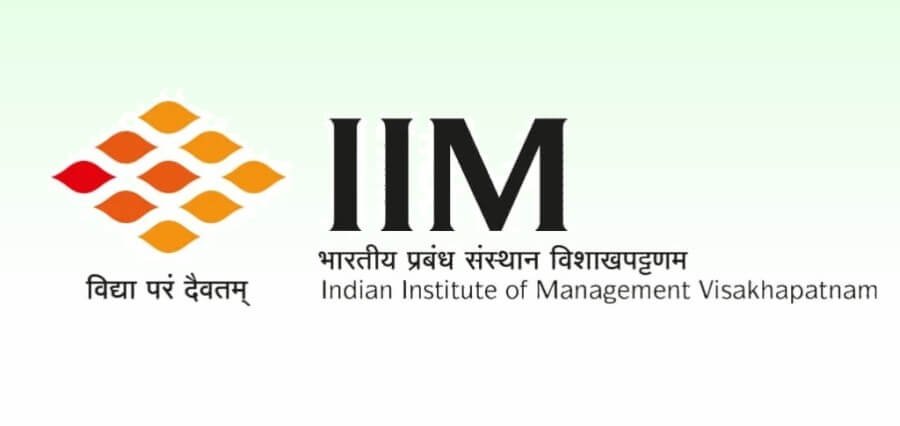Leading with vision in education creates a dynamic learning environment that promotes academic performance, creativity and social responsibility. It provides an inclusive platform where all aspirants succeed with an orientation towards shaping their abilities. At its core, perception is the belief that education is a transformative force that empowers individuals and enriches communities.
It develops a culture of lifelong learning where candidates are equipped with the knowledge, skills and mindset necessary to navigate the modern business environment. A passion for enabling efficiency in the educational sector eliminates barriers to learning and creates pathways to success for all students, regardless of background or circumstance. This culture reflects collaboration, respect and innovation, where diverse perspectives are valued and celebrated.
Sanket Shikhar, a seasoned professional and the Head of Business Operations at Xaltius Academy is a recognized leader in the field of technology education. His expertise and dedication are evident in his role, where he trains professionals and students to achieve success in the dynamic, competitive tech sector. His guidance helps aspirants to stay engaged and committed as lifelong learners, poised to make a positive difference in the world.
Upskilling Needs Across Continents
With a strong foundation in Electronics and Communication Engineering, Sanket has charted a career path that spans the tech and education sectors. His journey began with the acquisition of a B. Tech degree, which opened doors at prestigious tech companies like IBM and Iyogi. He further demonstrated his ability to thrive in demanding environments, earning multiple promotions in just three years.
Driven by an entrepreneurial spirit, Sanket established a thriving digital marketing firm. Scaling impressively from a team of 5 to 200 employees, the firm generated a monthly revenue of $100,000. However, recognizing a significant gap between industry expectations and academic offerings, he made a bold and impactful decision to transition into the education sector, where he could directly address this issue.
In the field of education, he focused on delivering job-oriented training in fields like data science, cybersecurity and software engineering. His efforts have empowered over 20,000 students from 30 different countries to pivot their careers into tech roles, with a significant majority hailing from non-tech backgrounds. He has also played a pivotal role in assisting numerous colleges in making their curricula more job-oriented, thereby better-preparing students for the workforce.
He oversees the upskilling needs of professionals across Asia, Africa and Europe. The work ensures that the academy’s programs align with the evolving demands of the global job market. The narrative provides a thorough synopsis of the professional journey, emphasizing the dedication to criticize the current status quo in education and improving the impact and accessibility of learning opportunities.
Creating an Environment for Collective Success
The leadership style is based on building strong relationships with team members and promoting a collaborative and supportive work environment. There is a belief in empowering the team to take ownership of their work and providing them with the necessary tools and resources for success. Over the course of Sanket’s career, his leadership style has evolved to place a greater emphasis on adaptability and open communication. He recognizes the importance of listening to diverse perspectives and facilitating a culture of continuous learning and improvement.
By encouraging innovation and supporting the team’s professional growth, he creates an environment where everyone can thrive and contribute to collective success.
Essential Resources and Support for Implementing Innovative Ideas
To nurture innovation and drive change within Xaltius Academy, a culture of innovation is prioritized where creativity and new ideas are encouraged and rewarded.
Empowering leaders at all levels to make decisions and drive initiatives is seen as crucial, as it inspires a sense of ownership and accountability that propels innovation. Collaboration across different teams and departments is deemed vital; regular brainstorming sessions, cross-functional projects and open communication channels are facilitated to ensure that diverse ideas and perspectives are shared and integrated.
Providing the necessary resources and support, including access to innovative technology and ongoing professional development opportunities, is considered essential for implementing innovative ideas. Embracing diversity in all its forms—cultural, experiential and cognitive—enhances the ability to innovate by building diverse teams and creating an inclusive environment where all ideas are heard and valued.
Continuous learning is at the core of the approach; team members are encouraged to pursue new knowledge, skills and experiences through training programs, industry conferences and promoting a mindset of lifelong learning. By integrating these strategies, a dynamic and forward-thinking organization is created that is well-equipped to innovate and adapt in a developing environment.
Challenges and Opportunities for Future Leaders
Future leaders in education and business are required to embody a combination of skills and attributes to effectively navigate the complexities of their roles. Integrity is seen as paramount, as it builds trust and sets a strong ethical foundation for decision-making. Self-awareness allows these leaders to understand their strengths and weaknesses, enabling them to lead with authenticity and humility.
Courage is deemed essential for making difficult decisions and driving change, even in the face of uncertainty. Respect for diverse perspectives raises an inclusive environment where all team members feel valued and heard. Compassion enables these leaders to connect with others on a human level, creating a supportive and motivating workplace culture.
Resilience is viewed as crucial for overcoming challenges and persisting through setbacks, ensuring that leaders can sustain their vision and drive long-term success. Together, these attributes equip these young leaders to inspire and guide their teams effectively, encouraging innovation and growth in their organizations.
Transforming Education through Collaborative Initiatives
Throughout his career, Sanket has developed several partnerships and collaborations, leading to a significant impact. One of the most impactful collaborations has been with My Global World. This partnership has enabled the offering of joint degree and certification programs that combine expertise in data science, cybersecurity and blockchain with their academic excellence, providing students with a comprehensive and highly regarded education.
Another noteworthy collaboration is with BHS Switzerland. Together, the firms launched the Masters and Doctoral programs in Data Science and Cybersecurity Program, which blend theoretical knowledge with practical skills, preparing students for current technology. The collaboration has allowed the enhancement of the curriculum and expansion of reach, offering students a unique educational experience that meets industry demands.
Additionally, past collaboration with IBM has been instrumental in shaping the career and the programs offered. Working with IBM provided invaluable insights into the tech industry, which have been leveraged to develop the training programs. The knowledge and experience gained from IBM have significantly influenced the approach to curriculum development, ensuring students are well-prepared for the job market.
These partnerships have not only enriched the educational programs but also reinforced the commitment to delivering high-quality, job-oriented training that bridges the gap between academia and industry expectations.
The Role of Aspiring Leaders in Education and Business
The advice to aspiring leaders in education and business is to embrace a few key principles. First, they should expect to make mistakes daily, as they are inevitable and provide valuable learning opportunities. Second, they shouldn’t pretend to know everything; instead, they should be open to learning from others and seek diverse perspectives.
Last but not least, nothing beats being open and honest. Transparency builds trust and fosters a culture of collaboration and innovation. By embracing these principles, aspiring leaders can cultivate environments where continuous learning, collaboration and meaningful change thrive, ultimately making a significant impact in their fields.
Engaging Stakeholders for Solutions
Sanket shares, “In navigating advancing but complex environments riddled with uncertainty, the decision-making approach is anchored in several core principles. Data-driven decisions are prioritized, reflecting the emphasis on evidence-based choices inherent in teaching data science. Rather than focusing solely on efficiency, effectiveness is prioritized, ensuring that decisions align with overarching goals and deliver meaningful impact.”
By embracing uncertainty, adaptability is maintained, along with a willingness to adjust strategies as new information emerges. Diverse perspectives are sought, engaging stakeholders to cultivate innovative solutions.
Additionally, the long-term implications of decisions are considered, balancing short-term gains with sustainable outcomes. “Making well-informed judgments that negotiate complexity and uncertainty is the goal of this method, which will ultimately lead to success and beneficial change,” he adds.
The True Essence of Mentorship
Mentorship and coaching have played pivotal roles in Sanket’s career trajectory, shaping his leadership style and contributing significantly to his professional growth. His approach to mentorship has always been to first identify areas where improvement or development is needed.
Then, it focuses on the individuals to demonstrate admirable skills in their areas of improvement, connecting with them to seek advice and guidance. Sanket helps these aspirants to stay engaged in conversations through specific orientation programs.
While there is a network of individuals considered mentors, the term ‘mentor’ is not always used in interactions. This approach allows for a more natural and mutually beneficial exchange, free from the burden or expectation that may come with the formal label. Sanket develops a more sophisticated view of leadership by sharing insightful knowledge and practical skills via his coaching and mentoring.
A Commitment to Quality and Accessibility
Changing the educational norm is one of Sanket’s main objectives. Looking forward, future goals and vision revolve around making a lasting impact in the field of education. Sanket is committed to providing quality, affordable education that is accessible to all.
He believes that quality education should not be prohibitively expensive but should be flexible and convenient, adapting to the learner’s daily routine. Education should be coherent and relevant, reflecting the rapid changes in the business world.
The theory is for learning in tiny, manageable doses rather than long hours in a classroom, utilizing the newest technologies and instructional strategies to make sure students have the most recent and useful knowledge and abilities. A more adaptable and dynamic approach to education is being advanced, one that can adapt to the shifting requirements of modern life.
Ultimately, his goal is to contribute to a future where education is not only accessible and affordable but also transformative and impactful, empowering individuals to succeed in an advancing global economy.





